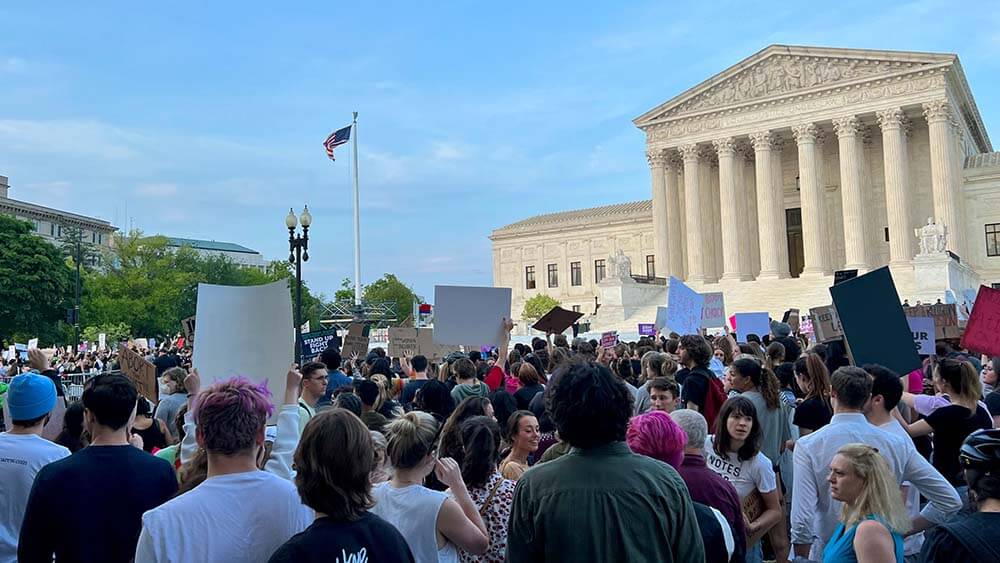
The U.S. Supreme Court’s decision overruling Roe v. Wade has given many organizations another thorny issue to consider when deciding where to hold their events.(Sarah Penney on Unsplash)
When the Supreme Court overruled Roe v. Wade in June, it not only took away the constitutional right to abortion, but also disrupted many organizations’ plans to hold their events in about half of the United States that now or will likely soon ban access to abortions.
As was evident during an Aug. 8 PCMA roundtable discussion about how to move forward after the Dobbs decision overturning Roe v. Wade, there is no one-size-fits-all solution to this challenge because of all the variables involved.
For planners, the goal is to be proactive instead of reactive so you can best communicate your values as an organization and be transparent about the site-selection process/criteria.

Carrie Johnson
The roundtable group arrived at various approaches to consider so that you are doing your best to ensure attendees feel safe and feel welcome at events in red-state destinations. Have a look:
- It helps if an association has clearly delineated values that you can incorporate into your contract clauses and RFP language — that is not the case across all associations. Frustration of purpose clause can mean not contracting with a venue that doesn’t accept a particular value embraced by the organization.
- It’s more challenging for associations that are dealing with a legislative/social issue that doesn’t directly tie in with their mission and/or is connected in varying degrees. If this isn’t clear, talk to your leadership.
- Survey your members to understand them at a deeper level to gauge how they should receive communications based on their values going forward — also, what trade-offs would they be willing to make on future locations?
- How are you working with your DMO partner to ensure your attendees feel safe and welcome? How do you balance duty of care with individual responsibility?
- Take an ad out in a local publication, invite local media to see a speaker at your event to raise awareness on how your organization is addressing an issue. This may not work for other organizations who are concerned about potential protests or security risks if they communicate in their host destination too much around a particular issue.
- Speak to your DMO, the local officials, empower your members with the tools to communicate to their local officials.
- Donate to a local cause to make a direct impact and raise awareness with the potential to create change.
- Educate your stakeholders and membership with fact sheets and talking points so they are not solely relying on emotionally charged headlines but have information to gain deeper understanding of the issue, talk to their local/state officials, and vote. Also inform them how it impacts members and hospitality staff located in those destinations/states if there’s pressure to move to another city. Remember you likely have members on both sides of any issue so it’s impossible to make everyone happy.
- Communicate the various trade-offs in site selection, if in fact, you are being encouraged by members, executives, board members, other stakeholders to select different cities going forward.
- From a destination perspective there are generally four buckets of customers impacted by anti-abortion legislation: 1) female-dominated organizations 2) medical associations 3) educational meetings 4) if the mission and/or demographics of an organization are socially liberal.
- Do you have the right resources at your disposal to help you navigate these challenges? That could include partnering with your DMO, other associations, local officials, an ethicist, legislative experts, etc.
- Don’t hesitate to collaborate with other organizations whether you’re a corporate, association, or supplier DMO because everyone needs support facing these challenges now and in the future.
Carrie Johnson, DES, is PCMA’s Senior Director of Education.
